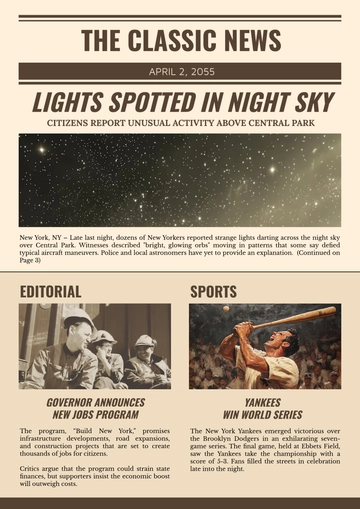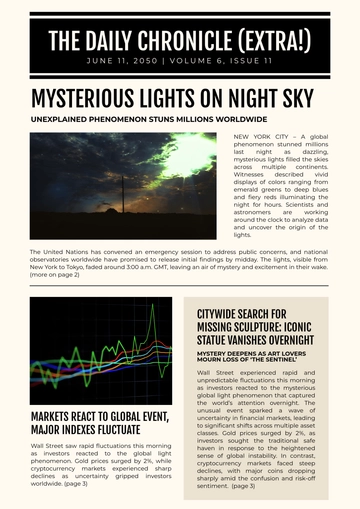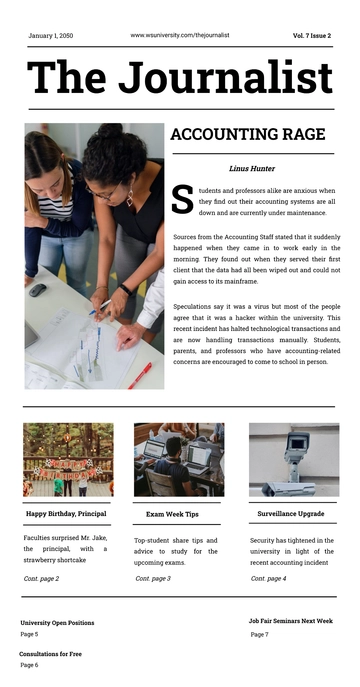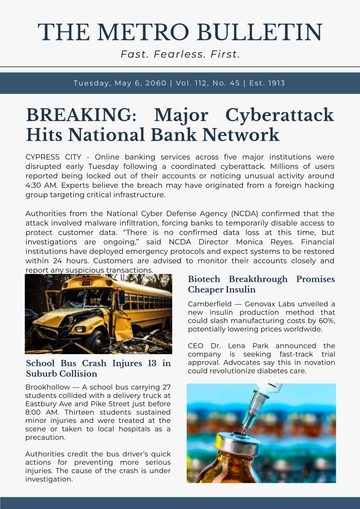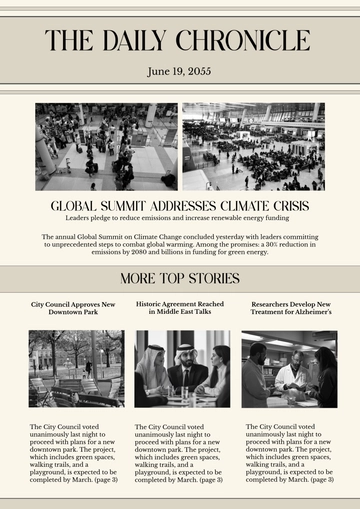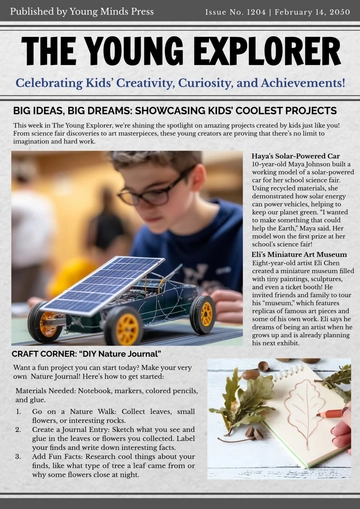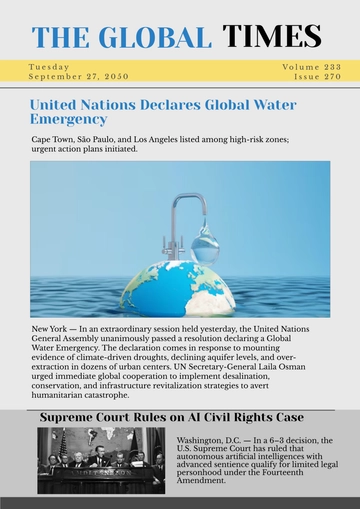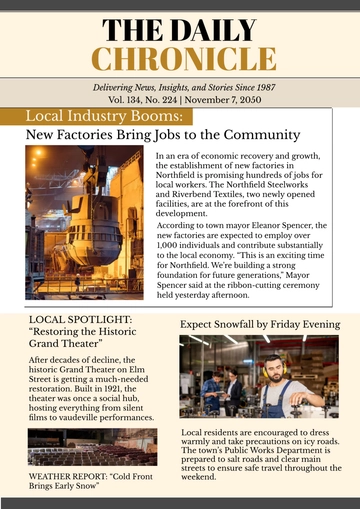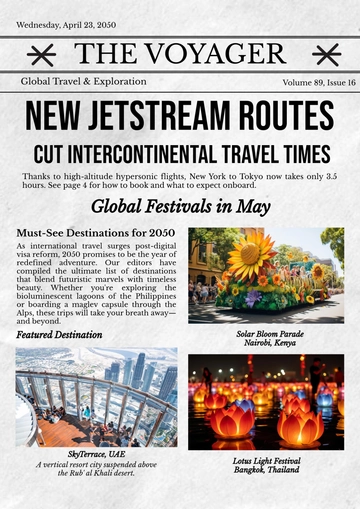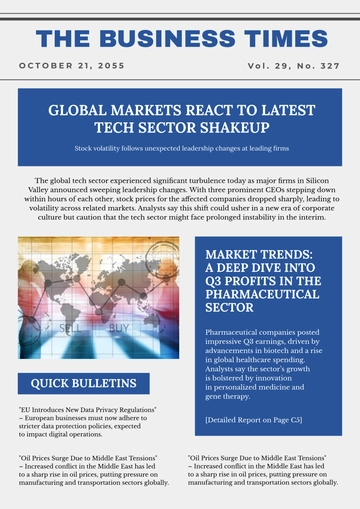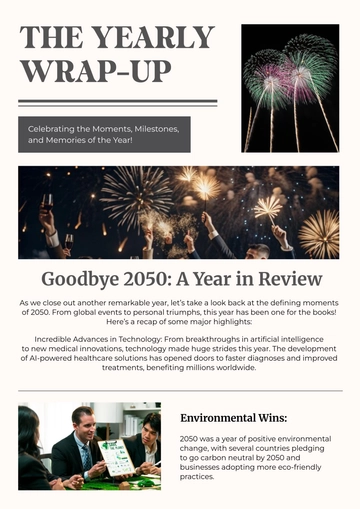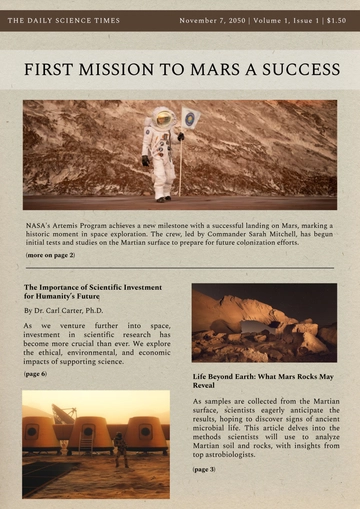Free Technology Trends for Newspaper Article
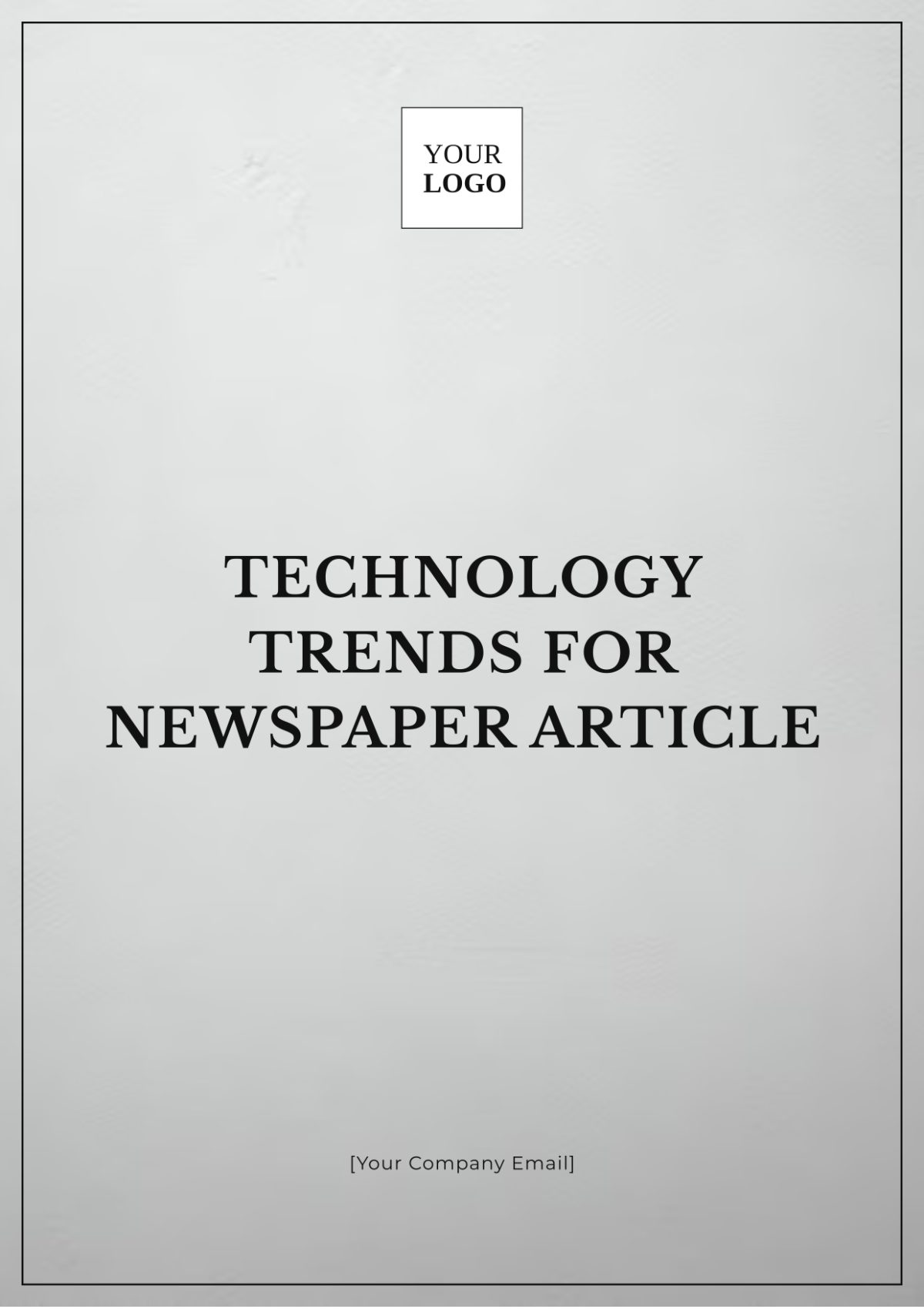
Written By: [Your Name]
The Future of Technology: Emerging Trends Shaping Our World
Artificial Intelligence: The Brain Behind Future Innovations
Artificial Intelligence (AI) is no longer a concept confined to science fiction; it's a transformative force reshaping industries worldwide. From healthcare to finance, AI is driving efficiency, personalization, and innovation. In healthcare, AI-powered diagnostics are improving the accuracy of disease detection, while in finance, AI algorithms are optimizing trading strategies and managing risk.
AI's impact on daily life is profound. Voice-activated assistants like Alexa and Siri have become household staples, while AI-driven recommendation engines power platforms like Netflix and Amazon, curating content and products tailored to individual preferences. Moreover, AI is at the core of autonomous vehicles, promising to revolutionize transportation by reducing accidents and traffic congestion.
However, the rapid adoption of AI raises ethical concerns. Issues such as data privacy, algorithmic bias, and job displacement require careful consideration. As AI continues to evolve, striking a balance between innovation and ethical responsibility will be crucial.
5G Connectivity: Ushering in a New Era of Communication
5G technology is set to revolutionize how we connect with the world. With speeds up to 100 times faster than 4G, 5G promises to unlock new possibilities in mobile communication, gaming, and the Internet of Things (IoT). This next-generation network will enable seamless connectivity, allowing billions of devices to interact in real time.
For industries, 5G is a game-changer. In manufacturing, it will support smart factories with automated systems communicating instantaneously. In healthcare, 5G will enable remote surgeries with real-time feedback, bringing quality medical care to underserved areas. The entertainment industry will also benefit, with 5G supporting ultra-high-definition streaming and immersive virtual reality experiences.
Despite its potential, 5G faces challenges, including the need for massive infrastructure investments and concerns over cybersecurity. As countries race to roll out 5G networks, ensuring robust security measures will be vital to protect against potential threats.
Quantum Computing: Breaking the Boundaries of Processing Power
Quantum computing represents a paradigm shift in computing power. Unlike classical computers that use bits to process information as 0s and 1s, quantum computers use qubits, which can represent and process multiple states simultaneously. This allows quantum computers to solve complex problems exponentially faster than traditional computers.
The potential applications of quantum computing are vast. In cryptography, quantum computers could break current encryption methods, necessitating the development of quantum-resistant cryptography. In materials science, quantum simulations could lead to the discovery of new materials with unprecedented properties. Additionally, quantum computing could revolutionize drug discovery by simulating molecular interactions at an atomic level.
However, quantum computing is still in its infancy, with significant technical hurdles to overcome. Building stable qubits and reducing error rates are major challenges that researchers are actively addressing. As the technology matures, quantum computing could unlock new frontiers in science and industry.
The Rise of the Metaverse: A New Digital Frontier
The concept of the metaverse, a collective virtual shared space created by the convergence of virtually enhanced physical reality and physically persistent virtual reality, is gaining traction. Tech giants like Facebook (now Meta) are investing heavily in building the infrastructure for the metaverse, envisioning it as the next evolution of the internet.
In the metaverse, users will interact with each other and digital environments in ways that are not possible in the physical world. This new digital frontier offers endless possibilities for social interaction, work, and entertainment. Virtual real estate, digital fashion, and NFTs (non-fungible tokens) are already emerging as valuable assets in the metaverse economy.
While the metaverse holds exciting potential, it also raises significant challenges. Issues such as data privacy, digital identity, and the digital divide must be addressed to ensure that the metaverse is inclusive and accessible to all. As the metaverse evolves, it will be crucial to establish regulatory frameworks that protect users and promote ethical behavior.
Sustainable Technology: Innovating for a Greener Future
As the world grapples with climate change, the role of technology in promoting sustainability has never been more critical. From renewable energy to green computing, technological innovations are driving the shift towards a more sustainable future.
Renewable energy technologies, such as solar and wind power, are becoming more efficient and affordable, reducing our reliance on fossil fuels. Innovations in energy storage, such as advanced batteries and smart grids, are addressing the intermittency of renewable energy sources, making them more reliable.
In the tech industry, there is a growing focus on green computing. Companies are adopting energy-efficient data centers, reducing electronic waste, and designing products with a lower carbon footprint. The rise of circular economies, where products are designed for reuse and recycling, is also contributing to a more sustainable tech ecosystem.
However, the transition to sustainable technology requires concerted effort and collaboration across industries. Governments, businesses, and consumers must work together to accelerate the adoption of green technologies and promote sustainable practices.
Conclusion: Embracing the Technological Future
The technology trends shaping our world today are not just about incremental advancements; they are driving profound changes that will define the future. As we navigate the complexities of AI, 5G, quantum computing, the metaverse, and sustainable technology, it is essential to embrace innovation while addressing the challenges that come with it.
By fostering a culture of responsible innovation, we can harness the power of technology to build a better, more connected, and sustainable world. The future is not just something to anticipate; it is something we are actively creating through the choices and technologies we embrace today.
- 100% Customizable, free editor
- Access 1 Million+ Templates, photo’s & graphics
- Download or share as a template
- Click and replace photos, graphics, text, backgrounds
- Resize, crop, AI write & more
- Access advanced editor
Stay ahead with Template.net's Technology Trends for Newspaper Article Template. This editable and customizable template provides a structured format for discussing the latest technological developments. Editable in our AI Editor Tool, it ensures your newspaper article is informative, well-organized, and resonates with tech-savvy readers, making it perfect for publication in a tech-focused section.


